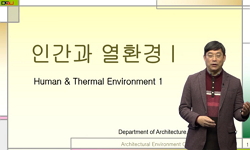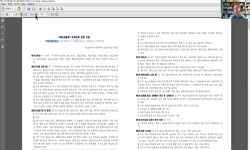Nowadays, our ecological environment is not getting better or recovered, but rather its contamination and destruction are increasing so that we are under the situation to concern about the crisis. Accordingly, eco-environmental problems must be still ...
http://chineseinput.net/에서 pinyin(병음)방식으로 중국어를 변환할 수 있습니다.
변환된 중국어를 복사하여 사용하시면 됩니다.
- 中文 을 입력하시려면 zhongwen을 입력하시고 space를누르시면됩니다.
- 北京 을 입력하시려면 beijing을 입력하시고 space를 누르시면 됩니다.
https://www.riss.kr/link?id=A76346601
- 저자
- 발행기관
- 학술지명
- 권호사항
-
발행연도
2008
-
작성언어
Korean
- 주제어
-
등재정보
KCI등재
-
자료형태
학술저널
-
수록면
7-35(29쪽)
-
KCI 피인용횟수
8
- 제공처
- 소장기관
-
0
상세조회 -
0
다운로드
부가정보
다국어 초록 (Multilingual Abstract)
The study tries to figure it out to the problems what Korean ecological poetry will solve and to the progressive direction, based on the upper-mentioned problems. The main subjects are as follows;
First, it should be coexisted to the ecologically criticizing civilizational poetry and the ecological lyric poetry at the point of view to complement each limitation. Eco-centralism or Life-equalitarianism is a final goal what ecology will pursue. However, before this, it is also important to arouse people's attention to stained or staining environment. These would only be done in a sphere to overcome excessive criticism or pessimistic prospect. Therefore, criticizing civilizational poetry and the ecological lyric poetry should go for the direction to be coexisted, balancing with each other. Futhermore, the study presumes to create ecological poetry to commute reality and nature freely, not to isolate from each other.
Second, we should write poems, bearing it in mind to the deepening of ecological consciousness or the enlargement of poetic subjects. It is true that, up to now, most of the existed ecological poetry in Korea was created with the surface consciousness about ecological environment and the limited poetic subjects. To overcome this, we would need direct or indirect experience and learning related with natural ecology and environment. It is the development of an aesthetic methodology to be added to the deepening of ecological consciousness or the enlargement of poetic subjects. The existence basis of literature thoroughly puts on its aesthetic feature. In other words, this means that works not to be premised by the feature is not literature any more. Therefore, it is needed to the groping and the development of various and effective methodology in order not to repeat the precedent.
Third, it is necessary to make ecological poems including spirits as follows; poems including spirit about the perception, self-reflection and responsibility that human being oneself is the main cause for the contamination and the destruction of ecological environment; poems including spirit to diagnose and accuse the abuses of an information-oriented society; poems including spirit of modesty which human being is only one part of the Nature; poems including spirit to adapt oneself to the Nature and the circulation order of the universe; poems including spirit to demand the control of human beings' egoistic mind and desire; poems including spirit of the moderation, harmony and balance; poems including spirit of reviving, not of killing; poems including spirit of love and sympathy about life; poems including spirit to take it seriously to femininity, maternity and childish innocence; poems including spirit of life community; etc.
Nowadays, our ecological environment is not getting better or recovered, but rather its contamination and destruction are increasing so that we are under the situation to concern about the crisis. Accordingly, eco-environmental problems must be still one the most pressing questions in this age. At this point, the study forecasts that ecological poetry could have a possibility to form a main stream in the world of poetry down through coming years.
The study tries to figure it out to the problems what Korean ecological poetry will solve and to the progressive direction, based on the upper-mentioned problems. The main subjects are as follows;
First, it should be coexisted to the ecologically criticizing civilizational poetry and the ecological lyric poetry at the point of view to complement each limitation. Eco-centralism or Life-equalitarianism is a final goal what ecology will pursue. However, before this, it is also important to arouse people's attention to stained or staining environment. These would only be done in a sphere to overcome excessive criticism or pessimistic prospect. Therefore, criticizing civilizational poetry and the ecological lyric poetry should go for the direction to be coexisted, balancing with each other. Futhermore, the study presumes to create ecological poetry to commute reality and nature freely, not to isolate from each other.
Second, we should write poems, bearing it in mind to the deepening of ecological consciousness or the enlargement of poetic subjects. It is true that, up to now, most of the existed ecological poetry in Korea was created with the surface consciousness about ecological environment and the limited poetic subjects. To overcome this, we would need direct or indirect experience and learning related with natural ecology and environment. It is the development of an aesthetic methodology to be added to the deepening of ecological consciousness or the enlargement of poetic subjects. The existence basis of literature thoroughly puts on its aesthetic feature. In other words, this means that works not to be premised by the feature is not literature any more. Therefore, it is needed to the groping and the development of various and effective methodology in order not to repeat the precedent.
Third, it is necessary to make ecological poems including spirits as follows; poems including spirit about the perception, self-reflection and responsibility that human being oneself is the main cause for the contamination and the destruction of ecological environment; poems including spirit to diagnose and accuse the abuses of an information-oriented society; poems including spirit of modesty which human being is only one part of the Nature; poems including spirit to adapt oneself to the Nature and the circulation order of the universe; poems including spirit to demand the control of human beings' egoistic mind and desire; poems including spirit of the moderation, harmony and balance; poems including spirit of reviving, not of killing; poems including spirit of love and sympathy about life; poems including spirit to take it seriously to femininity, maternity and childish innocence; poems including spirit of life community; etc.
목차 (Table of Contents)
- 1. 서론-출현 배경
- 2. 한국 생태시의 현황
- 3. 한국 생태시의 한계와 문제점
- 4. 결론-바람직한 방향을 위하여
- 참고문헌
- 1. 서론-출현 배경
- 2. 한국 생태시의 현황
- 3. 한국 생태시의 한계와 문제점
- 4. 결론-바람직한 방향을 위하여
- 참고문헌
- 〈Abstract〉
참고문헌 (Reference)
1 남송우, "환경시의 현황과 과제" 현대시 1993
2 상찬경, "한국현대시에 나타난 문명관" 현대문학 1993
3 도정일, "풀잎, 갱생, 역사" 문예중앙 1993
4 이경호, "풀무치의 눈에 보이는 초록의 길" 다산글방 1991
5 송희복, "푸르른 울음, 생생한 초록의 광휘" 현대시 1996
6 정효구, "최근 생태시에 나타난 문제점" 시와사람 1996
7 신덕룡, "초록생명의 길1" 시와사람사 1997
8 김진수, "자연시와 생태시 점검" 포에지 2001
9 정효구, "우주공동체와 문학" 현대시학 1993
10 김진수, "에코-포에틱스 한계와 가능성" 포에지 2001
1 남송우, "환경시의 현황과 과제" 현대시 1993
2 상찬경, "한국현대시에 나타난 문명관" 현대문학 1993
3 도정일, "풀잎, 갱생, 역사" 문예중앙 1993
4 이경호, "풀무치의 눈에 보이는 초록의 길" 다산글방 1991
5 송희복, "푸르른 울음, 생생한 초록의 광휘" 현대시 1996
6 정효구, "최근 생태시에 나타난 문제점" 시와사람 1996
7 신덕룡, "초록생명의 길1" 시와사람사 1997
8 김진수, "자연시와 생태시 점검" 포에지 2001
9 정효구, "우주공동체와 문학" 현대시학 1993
10 김진수, "에코-포에틱스 한계와 가능성" 포에지 2001
11 홍용희, "신생의 꿈과 언어" 시와사상 1995
12 이건청, "시적 현실로서의 환경오염과 생태파괴" 현대시학 1992
13 양동식, "시적 상상력과 오류" 현대시학 2001
14 도정일, "시인은 숲으로 가지 못한다" 민음사 1994
15 장석주, "시의 생태학적 상상력을 위하여" 현대시학 1992
16 김종철, "시의 마음과 생명공동체" 녹색평론 1991
17 송희복, "서정시의 화엄경적 생명원리" 시와사상 1995
18 송희복, "서정성과 생태주의" 오늘의 문예비평 1999
19 이숭원, "생태학적 상상력과 우리시의 방향" 실천문학 1996
20 장경렬, "생태페미니즘 시의 현재와 미래" 시와사람 2001
21 김용민, "생태사회를 위한 문학" 현대문학 2000
22 남송우, "생명시학을 위하여" 시와사람 1996
23 이숭원, "생명시의 현황과 전망" 동강문학 2001
24 신덕룡, "생명시에 나타난 생명활동의 양상과 의미" 시와사람 2001
25 신덕룡, "생명시 논의의 흐름과 갈래" 시와사람 1997
26 이희중, "새로운 윤리적 문학의 요청과 시의 길" 현대시 1996
27 정과리, "문학과 환경" 불휘 1996
28 구중서, "문학과 생명운동" 태학사 1993
29 신정현, "문명비판과 환경에 대한 관심" 문학사상 1992
30 이동승, "독일의 생태시" 외국문학 1990
31 정효구, "도시에서 쓴 자연시의 의미와 한계" 21세기문학 1999
32 정호웅, "녹색사상과 생태학적 상상력" 문학사상 1995
33 이남호, "녹색문학을 위하여" 포에티카 1997
34 김정란, "근대시의 소명" 포에지 2001
35 신덕룡, "걸어온 길과 가야할 길" 현대시 1998
36 최동호, "21세기를 향한 에코토피아의 시학" 나남 1996
동일학술지(권/호) 다른 논문
-
- 한국비평문학회
- 차호일(Cha Ho-il)
- 2008
- KCI등재
-
- 한국비평문학회
- 홍혜원(Hong Hye-weon)
- 2008
- KCI등재
-
- 한국비평문학회
- 이진우(Lee Jin-woo)
- 2008
- KCI등재
-
- 한국비평문학회
- 이한정(Lee Han-jung)
- 2008
- KCI등재
분석정보
인용정보 인용지수 설명보기
학술지 이력
| 연월일 | 이력구분 | 이력상세 | 등재구분 |
|---|---|---|---|
| 2027 | 평가예정 | 재인증평가 신청대상 (재인증) | |
| 2021-01-01 | 평가 | 등재학술지 유지 (재인증) |  |
| 2018-01-01 | 평가 | 등재학술지 유지 (등재유지) |  |
| 2015-01-01 | 평가 | 등재학술지 선정 (계속평가) |  |
| 2013-04-01 | 평가 | 등재후보로 하락(현장점검) (기타) |  |
| 2013-01-01 | 평가 | 등재후보학술지 유지 (기타) |  |
| 2010-01-01 | 평가 | 등재학술지 유지 (등재유지) |  |
| 2007-01-01 | 평가 | 등재학술지 선정 (등재후보2차) |  |
| 2006-01-01 | 평가 | 등재후보 1차 PASS (등재후보1차) |  |
| 2005-01-01 | 평가 | 등재후보학술지 유지 (등재후보1차) |  |
| 2004-01-01 | 평가 | 등재후보 1차 FAIL (등재후보1차) |  |
| 2003-01-01 | 평가 | 등재후보학술지 선정 (신규평가) |  |
학술지 인용정보
| 기준연도 | WOS-KCI 통합IF(2년) | KCIF(2년) | KCIF(3년) |
|---|---|---|---|
| 2016 | 0.39 | 0.39 | 0.41 |
| KCIF(4년) | KCIF(5년) | 중심성지수(3년) | 즉시성지수 |
| 0.5 | 0.5 | 0.701 | 0.17 |




 ScienceON
ScienceON DBpia
DBpia






